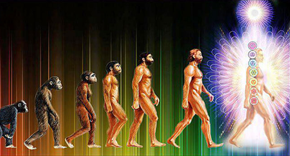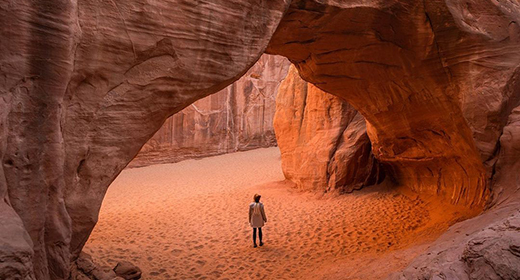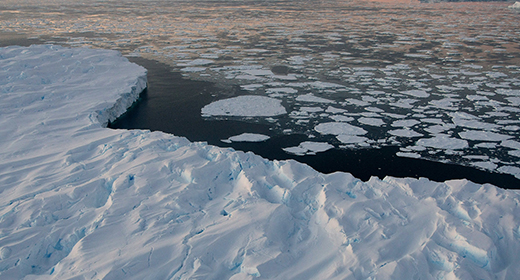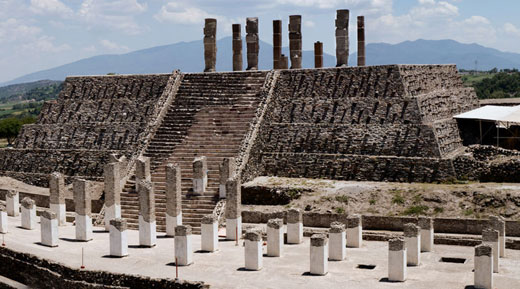by Tami Simon: This week I interview Jean Houston, one of the founders of the human potential movement. 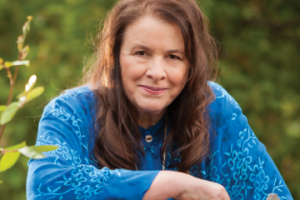 We discuss the nature of time, and change, in relation to 2012, a date that she finds humorous, yet important. She sees this time as a critical juncture point for humanity, which she calls jump time, and explains that throughout human history, we have dealt with many such times, but that this one may have the greatest importance of all.
We discuss the nature of time, and change, in relation to 2012, a date that she finds humorous, yet important. She sees this time as a critical juncture point for humanity, which she calls jump time, and explains that throughout human history, we have dealt with many such times, but that this one may have the greatest importance of all.
Tami Simon: This is the third interview I’ve done in this series on 2012. And what I’ve noticed is that I’ve started to become a little bit grumpy, in fact I’ve started calling myself the 2012 grump. In listening to you, Jean, and considering your work, I clearly don’t feel grumpy about the idea of human evolution and possibilities for us as individuals and society and the world. I think what I feel a little grumpy about is people, kind of in a naïve way, attaching to this date, 2012. And all of the mythology and wishful thinking and, I’d say, undocumented scientific nonsense that’s associated with 2012. And I’m wondering how you feel about that, and how you would both associate your work with 2012 and perhaps not. How do you make those distinctions?
Jean Houston: As the daughter of a comedian I regard it as a comical date, a piece of absurdity that has become attached to certain levels of the culture. Also, a mythic form. Now, a myth is something that never was but is always happening, you know. A myth is the coded DNA of the human psyche that says it’s time to journey now, it’s time to move on. It‘s time to find a larger life. And everybody ‘s looking for a door, a portal to that larger life and 2012 either exists as a sort of frissance, something that makes the hair rise on the back of the head, or as a lovely opportunity. The human race has been filled with critical years, I mean in the year 1000, people were thinking the world was going to end, and so people would sell everything and go sit on top of a mountain and wait and then nothing happened. It was an enormous disappointment. Same thing with Y2K, you know with the year 2000. We are, I think, date-specific hysterics. We love dates because it gives us something to look forward to and look beyond. I, myself, don’t have any particular oracular or ecstatic or even evolutionary feelings, or apocalyptic feelings for that matter, about 2012. I just think it’s a nice year to work towards and perhaps to begin to give us back some of the intensity we require to continue on the journey toward it. You know, it’s like death, the notion that you’re going to die soon focuses the mind wonderfully well.
Tami Simon: So for you, if other people were all rallying around 2022, you could see that as potentially a useful mythological form.
Jean Houston: Yes, useful and also equally absurd and funny.
Tami Simon: Okay. And so then, how do you see 2012 playing a mythic role? What do you see as a date, how do you see that functioning?
Jean Houston: Well, as I said, being a myth, that is, that never is but is always happening, it is a happening in our lives that allows us the opportunity to take on challenges we normally would not do, to stop putting off things. To stop being lazy. I find that one of the greatest of all human potentials is sloth. And so I think that it gives us that focus point upon which, if I’m going to learn to play the piano, I’d better start now. If I’m going to raise my children better, I’d better start now. If I’m going, in fact, to begin to tap into the creative possibilities that I have- for that book, for that project, for that social action- I will do it now. Because I will prepare myself to be ready for whatever it is that 2012 at least presumes to offer me. I will be prepared, this is the time for skill-building, it’s the time for essentially going to night school of one kind or another, whether it’s out there in the mall, or whether it’s in the interstices of my own deepest imagination. But whatever it is, it gives us a delightful choice point, upon which to then engage and harvest the activities that we should be doing.
Tami Simon: A lot of people think of 2012 as some kind of timeline that’s functioning outside of them. And it doesn’t matter what they do or don’t do because the clock is ticking.
Jean Houston: Yes, it’s like a lady who’s 38 years old and says her biological clock is ticking, so she’d better find a very nice person to have a baby with. And it’s that same kind of thing that some people have taken up with. Now I have to admit that I just do not move in those circles where 2012 is of any particular importance. That may surprise you, but I just don’t. So much of my work as you know is international, and working with people on very, very critical day-by-day challenging issues of life and death. So 2012 just does not come up. But when I do hear this, especially from my more new age friends, you know I participate in the conversation as a wonderful chance to explore the importance and the, if you will, intensification of our lives now. I think one thing 2012 might do is take us out of our screen life, out of the fact that somewhat of us live our lives looking at screens- television screens, computer screens, now these little iPod screens and iPhone screens. How to go beyond the screen into life itself. Perhaps this is a wake up call for life itself.
Tami Simon: You seem convinced, even if it’s not the date 2012, which as you said, has some comic qualities. Can I ask you, what is comic about it to you? What’s funny about 2012 to you?
Jean Houston: Well, it’s the absurdity that one particular year is going to contain it all. Whereas, when you really look at the fact of the space-time continuum and where we are, that all time, and all space, in some sense is here, in the radical now. To assume that this comical little year trotting along, 2012, 2012, I’m it, I’m it, whereas the categories of time are strained by the tensions of eternity. Eternity, time, timelessness, it’s all here right now. And then to try to make a singularity out of a particular year – that’s really funny. That’s like saying that the most important beast in the forest is a zebra.
Tami Simon: But now you do believe that this is the most critical time in human history.
Jean Houston: I would say, from someone who is a cultural historian and has spent a lot of time looking at patterns of history, I would say that we are in for a convergence of time past, time present, time future insofar as that this is a turning point. Many people have written about that, to say that we are in the genre of a turning point. What the Hindus may refer to as the Kali yoga that is upon us, or it’s a point as Jean Baptiste Vicco when he talked about “corso eri corso.” The turning and returning of different kinds of ages, the ages of gods, and the ages of heroes and the ages of men, etc. That we maybe have to have fractal patterns in history. We know what fractals are- patterns of repetition that we find for example, in an artichoke. When you look at an artichoke, the whole thing looks like an artichoke, but if you at look at one of the leaves it also looks like the artichoke. Or if you look at the cauliflower- the little floret looks like the totality of the whole, although it is still singularly its own. Or you take a coastline, a very large coastline, and then you look at the little wave eddies the waves are making and they look like the coastline- fractals. We exist in fractals. Much in our body is repetitions from micro to macro levels. The universe itself seems to be a fractal. And if so, perhaps, time is a fractal, and if time is fractal then there’s patterns of repetition with unique differences. Then we can say that perhaps, what we’re looking upon in this particular era of enormous change is synonymous with other periods of enormous change, be they what happened in the Tang Dynasty in the ninth century or whether whatever happened during the Renaissance. But I tend to believe that we are in a fractal turning. Now that may be as preposterous ultimately, as 2012. But 2012 gives focus to the sense that we are fractally in a time of the great turning.
Tami Simon: So, for example, if we take this fractal idea, in previous times in human history they could have been reflecting, as you said, in the sixth century B.C., was a time of great change. So it could be similar to that but… Is that what you’re saying?
Jean Houston: Well, there could be some . . . For example, something that not just myself but others have written about is the Roman Expire. We can look at the time of the great republic as being part of our great republic from the end of the 18th century up to fairly recently. And then this acceleration that has happened with America taking on more and more of the empire role that corresponds to the empire time of it. And we can look at the fact that we seem to be in a new kind of dark ages, that is accelerating-perhaps ultimately responding to what occurred in the high middle ages and early renaissance, which would correspond to the rising of a planetary civilization with high individuation of culture. And we can go on and on and on, and even find within the time of exploration relating to certain times of exploration in the Roman Empire. But there are things about the Roman Empire that can readily be made fractally resonant with the story of America.
Tami Simon: I guess maybe part of my question is the claim that we’re in the most critical time in human history. I wonder if people of every generation have felt that, because it’s the generation in which they’re alive.
Jean Houston: Not every generation, no. There have been nice long fairly pleasant not too much happening times. There have been periods in history that were not unlike a Jane Austen novel- you turn the page and nothing happens, you turn the page again and still nothing happens. Although beneath the surface there may be psychological turnings. But I think it would be hard not to say that at least universally, meaning in terms of the whole planet, and the huge issues of the planet that have never been faced before in historical memory, perhaps during the late ice ages, etc. but to see the immensity of climate change over the last even 40-50 years. To see the rise of women to full partnership with men in the whole domain of human affairs. To see the interrelationships of many, many cultures happening spontaneously- not overnight but over a period of 20, 40, 50 years. Things that usually took hundreds or even thousands of years happening in a decade. The stakes are so humongous. I mean we could lose it all, we could even lose ourselves as a species pretty much by the end of the century, unless certain things happen. One is a whole new order of cooperation we’ve never had before, and especially about the ecology. A whole new order of cooperation in terms of equitable distributions and other things. A whole new order of cooperation of seeing each other- crossing the great divide of otherness and seeing each other in our common humanity. These things as far as we know have never ever, ever happened before, nor has ever happened the sheer time problems that exist. I mean we have four, five, six years, maybe ten at the most to make some very significant changes in how we work with the earth herself and with the ecology. I think we’re living in a time that’s called Chiros – the loaded time. I once invented a term “Chirotic”- the passion, Chiros, and Eros- the passion of the loaded time. Many people wake up in the morning with the hound of heaven going ruff-ruff at their feet- it’s time to get on with it. Don’t you? I mean, you would not have done all the work that you’ve done if you didn’t feel the Chirotic urge or the dog snapping at your feet to get on with it.
Tami Simon: It’s true, but I do feel you’re one of the most Chirotic people I’ve ever met.
Jean Houston: Well, I like time. Some people are people of space, I’m a person of time, maybe because I came at the beginning of my mother’s seventh month, so I got out of ordinary time, and have been trying to make up for it ever since.
Tami Simon: Now, you have a phrase that you use, called jump time. I’m curious what that is.
Jean Houston: Jump time is the time of what is sometimes called in evolutionary language punctuated equilibrium. Meaning that the equilibrium, the same old same old, suddenly shifts over a fairly short period of time. In evolutionary theory it has to do with the fact that if you look at a fossil record, and you see for hundreds or even thousands of years the fossil looks pretty much the same, age after age, era after era, year after year. And then suddenly, within a really relatively short period of time by evolutionary ages, it jumps- it becomes something rather unique compared to what it was. And now I believe that historical cycles of the human species also have these jump times. A huge jump time would be, for example, ancient Egypt. How does it happen that over a period of just a really rather short time, several hundred years, an aboriginal swamp people not only drain the swamps, create a magnificent agriculture, create hieroglyphics, create a theology, a philosophy, a building program- the pyramids and then the Sphinx among other things, if in fact they were built about that time. They create a high civilization in a very short period of time- that would be a jump. What happened in Hellenic Greece, coming out of a relative dark ages and this extraordinary civilization happening so very, very rapidly. What happened with the Renaissance out of the Dark Ages. These are jump times. What is happening now with the convergence of all the cultures, the histories, the ways of being, the theologies, of the whole world meeting and matching, sometimes in anger, sometimes in love, this is a jump time. And given to it also unlike in the other times is a radical shift in the ecology, which is requiring of us these capacities of the possible human that I spoke of earlier.
Tami Simon: What do you think we’re jumping to? Once we’ve jumped and we’re in this new frame, what will it look like?
Jean Houston: You know, I’ve thought about that all my life. You may know that between my 14th and my 17th year I used to walk often on Tuesdays and Thursdays with an old man who I called Mister Tayer. It was only after he died and he didn’t meet me anymore at the corner of 84th Street and Park Avenue in New York City that I found out that was in fact Pierre Teilhard de Chardin, who lived across the street from me. And he kept talking to me- “Oh, Jean, the people of your time will be taking the tiller of the world. But you cannot go directly, you must touch all cultures, all people, because then, then the Noosphere will come into being.” And the Noosphere was the field of mind, of humanity, of the collective consciousness, of a consciousness that in some sense would be available to us as part of our training to a higher humanity. Part of my job, or my hope, is to create wherever I go, because my work now has affected millions of people, and if I can affect millions of people, everybody else can too, in some way or other. Now, I’ve had very significant advantages. But to really be there for each other in ways that we serve as midwives of souls of each other, to call each other to the relative potential of who and what we are, to raise the bar of who and what humanity is and what we may yet become. We need new images, we need the images of what a world civilization, and perhaps even a world spirituality, a world being, will be. That’s why we are in the jumpiest of jump times and what we do in our lifetimes will profoundly make difference as to whether we grow or whether we die.
Tami Simon: Can we talk a little bit more about the Noosphere? Is that something that exists that we’re discovering or something that we’re co-creating together? And what exactly is it?
Jean Houston: I think Teilhard would have said that it is co-creative. We talk about the hydrosphere, when the earth was covered with water. We talk about the lithosphere, when the continents arrived, the bathysphere… The Noosphere is the sphere of mind – noos of course means mind- it’s the sphere of mind; it’s the sphere of the accomplishments and the creative processes of our humanity that really are there to join us into a level of unity that we have never known before. I mean, never before in human history apart from indigenous peoples has there ever been the sense of this yearning, this yearning for the whole, the yearning for oneness, the yearning for unity. Why do so many people look in other religions, why do so many Jews become Buddhists, why do so many Episcopalians become Sufis? It’s very interesting that nobody goes South in their Psyche, they stay in the temperate zones as they are looking for a controlled unity, whereas if you go down into Africa you go into the holy terror of Goddedness , as you dance yourself into the lower/Loa . . . although that has come back through black music, you know in the last 100 years. But I think that where we are- this strange availability- is not unlike Ilya Prigogine’s 1977 Nobel-winning concept of dissipative structures and how the second law of thermodynamics requires a movement toward greater and greater complexity that will lead to greater and greater evolution and consciousness, and that’s where we are. I mean never before has the human race had so much cross-cultural stimulation. And I believe, too the rising of the interior depths that provides the vertical dimension for the existential charge and change.
Tami Simon: So the Noosphere then, is like a network or a web of…
Jean Houston: Web of webs.
Tami Simon: Web of human knowledge. Is it something that transcends our humanity, its own sphere beyond, or is this like a sphere of human knowing?
Jean Houston: Well I think Teilhard probably meant both/and, plus much, much more. A sphere of human knowledge, a sphere of human noetic mental psychological spiritual suchness, the suchness of we, that then itself was almost an organically alive beingness that could much more readily have hooks and eyes on the metaverse, on the pleuroverse, on the world, on the quantum reality on which we live and move and have our being. Thus we have access, it’s like suddenly learning many, many different languages, not just languages of body but languages of mind, soul and spirit so that that which is latent in us can then be activated, can be turned on. I mean when I think about the life of my great-grandparents, say, or even by grandparents, I realize that my brothers and I live, 5, 10, 100 times the sheer experience that they lived. At the same time we have more psychological challenges, that they did not have when they lived on the farm or lived in a simple village. All of us get wounded because of the muchness and the unexpectedness of our daily reality. I sometimes say to my audiences, so many of you are so full of holes you become holy. You become vulnerable and available. And I think it is this massive availability which of course at the same time is counter-attacked by a massive rose of fundamentalism, in many places in the world, not just in religions but in politics, obviously, in many ways of being, etc. Because people are fearful of this rapid acceleration of change and long for the simple precepts, the simple belief systems, even the simpler relationships that would put them back in touch with the great chain of being from the last thousands of years which suddenly we have jumped out of.
Tami Simon: So do you see this as a time, as part of the jump time, in which there will be this greater spiritual awakening, in people throughout the world? And how would you describe that?
Jean Houston: Well, you see I have certain advantage- this is a hugely excessive remark but it has some truth to it- in that I am one of best-traveled human beings who has ever lived on this planet, you know having worked in over 100 countries and 40 cultures, etc. I do find this to be so. Sometimes it’s very well hidden, but you get down and dirty talking to people where they work and how they are and in their family homes, and you find out that people are yearning- yearning and talking about things that even 40, 50 years ago they would never have talked about. I’ve had conversations in Bangladesh with women who were kept relatively separated, and their extraordinary understanding of the world. I’ve had conversations while going walkabout with Australian aborigines and in parts of Arnumland and sitting down and being part of their ceremonies and their regular life and digging up tubers, because if you didn’t you weren’t going to eat, you know. And then listening to their lucid understandings of the nature of space and time and the universe, and who we are and where they are and what is trying to happen. So yes, I would have to say that the collective unconscious has risen in the minds of those not only who are prepared but often as a form of madness or even ecstasy or peculiar creativity in the minds of those are ostensibly very unprepared.
Tami Simon: Do you have concerns that humanity will not successfully make this jump?
Jean Houston: I think we all have that same concern, but I cannot act as if that’s so, I have to act as if our future is there. I think we’re at the great choice point of human history. I sometimes like to think that there are other probabilities and realities and maybe, looking into the new work of some of these quantum physicists, people like Michio Kaku or David Deutsch in England, or Ellen Gooth at MIT, and others who are talking about parallel worlds, you know and beginning with John Wheeler of course. Parallel realities. And maybe there are realities that are up or further down the timeline than we are and maybe we can learn from them. Whether we enter into different states of consciousness or reflection or meditation and we- there as universal resources, data banks that are existent in the great metacomputer that we call our reality, and that we can tap into alternate ways of solving problems that we would not have had. The new physics certainly looks like the old science fiction and I happen to believe that more and more people are looking for another probability, a probability that so far as we know may have been played in another space-time continuum. But a probability in which we do turn around, we wake up, we say yes. I think that the advantage that I’ve had in my life, is not to stay stuck with the New York Times, or the San Francisco Chronicle, or even the Manchester Guardian, or the television shows, but to really be in so many other societies where there is an order of hope, of natural sensibility with nature containing with nature as well as a sense of the deep goodness of life. To appreciate what these other people have said about a sense if assurance that life will continue, and will continue in ways that are maybe much simpler. But they maybe have a better order of goodness in them, so I choose to believe that and spend my life working to help make that happen.
Tami Simon: Jean, you have an interesting vocabulary about time, and obviously you’ve thought a lot about time. And you said you were a lover of time.
Jean Houston: I am indeed.
Tami Simon: So, I’m curious, how do you put together in your own thinking, eternity, parallel universes, and the critical nature of the time that we’re in? How do you put together all these different views of time into something that’s coherent?
Jean Houston: With great difficulty.
Tami Simon: Okay! [Laughter]
Jean Houston: I think that I live in kind of compressed time, the nature of my life is such that it has many more activities and responsibilities than my friends and neighbors have, by and large. So I do have the clock time, Chronos. But I have always lived, since I was a tiny child, in a sense of Chiros, that these are the times and we are the people. And what we do as I said will profoundly make a difference as to whether we grow or die. So I look for the Chiros in people’s lives, I look for the Chiros in circumstances, in the event horizons in which we live. And I also, as someone who is a contemplative, and has a contemplative practice, I certainly, during the course of a month I certainly do my best to be available to and tap into or be tapped into, that sense of timelessness, of eternity which contains all points of time. You just become conscious of them all, and sometimes they seem to even occur simultaneously. Or simul-timelessly.
Tami Simon: Just one final question. You talked about this as a time for people to get prepared, giving the idea that if you’re a 38-year-old woman and you want to have a kid, the clock is ticking. What do you think, specifically for the people are listening, are the most important things they can do to prepare for this period of jump time?
Jean Houston: I think it is awareness, is it not? It’s waking up. As I said, these are the times, we are the people, and it doesn’t have to be anything dramatic or huge. It can be simple awareness each day, awareness of how am I here to be of use, to serve, to be kinder, and kindness is really ultimately all, isn’t it? Lovingkindness, empathy, and to do this and to realize if you think you’re neurotic, it’s the neurosis of the times, it isn’t simply you. That you are this extraordinary happening in this most immensely important time in history, to have been born into this time and space is an immense gift, and to use the gift wisely. I think it’s also to have, if you will, your own teaching/learning community. On her deathbed Margaret Mead, and I was present there the day before she died, she said, “Listen, forget everything I’ve been teaching you about working with governments and bureaucracies.” And I looked down at this dying woman and I said, “Now you tell me? Now?” And she said, “Yes, I’ve been lying here being an anthropologist on my own dying- fascinating experience, there’s no hierarchy to it, and I realize that if we’re going to grow and green our times it’s a question of people getting together, in teaching/learning communities”. Teaching/learning, whether it’s your family, or your community, or your friends.
And she said, “Doing exercises, Jean, your kinds of exercises, other kinds, or discovering your own- doing things that grow you in body, mind and psyche.” And on the basis of that, of these processes and exercises, going out and discovering what needs to be done in your family, your community, wherever it is. Whether it’s the changing of the light at the corner so the kids don’t get killed, whether it is creating the house for battered women, whether it is finding a candidate whose thoughts you can believe in, and helping him or her, whatever it is- or it might even be growing within yourself a new passion for possibilities and letting this passion carry you. But at the same time growing together, holding each other to the higher standard of mind, body, spirit, psyche. She said, “Write the rest if your books like this”, and I said, “Yes I will, I’ll write for these people, I’ll write for these kinds of communities”, which in my own small way I have. But I think that’s what it is- it is to have a cadre of friends, even one or two, where we hold each other to our excellence. You know, in the northern India, there is a practice when a person says, “You know I’m in very bad state, I really don’t believe in myself. Will you please hold my excellence for me?” – “Oh, yes, I’ll hold your excellence for you, until you come back again.” But I think it is seeing each other as God no longer in hiding, seeing each other in the fullness of who and what we are, and calling each other into the dance, and there’s only the dance, where we really know that we can profoundly make a difference, in small ways that can then be generative throughout our world in very large ways indeed. I think it is to awaken to the importance of being alive in this time.

